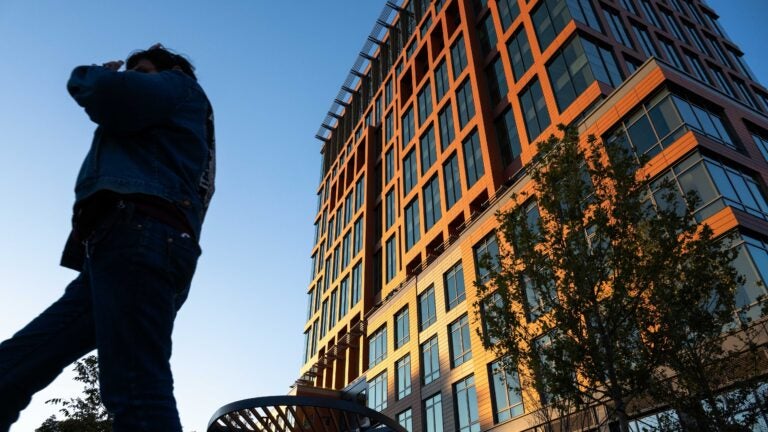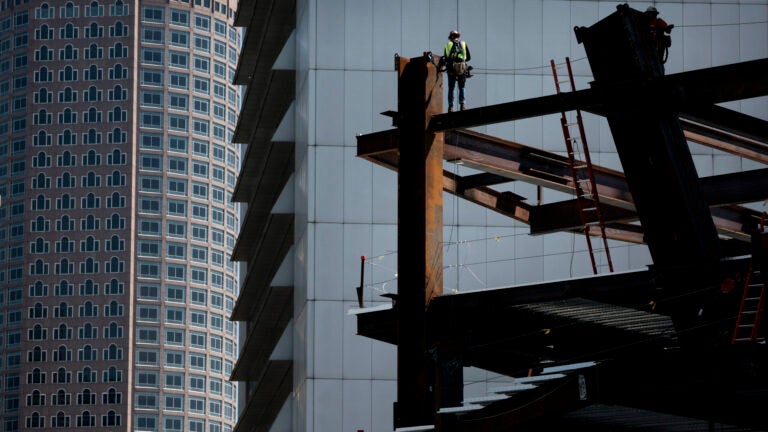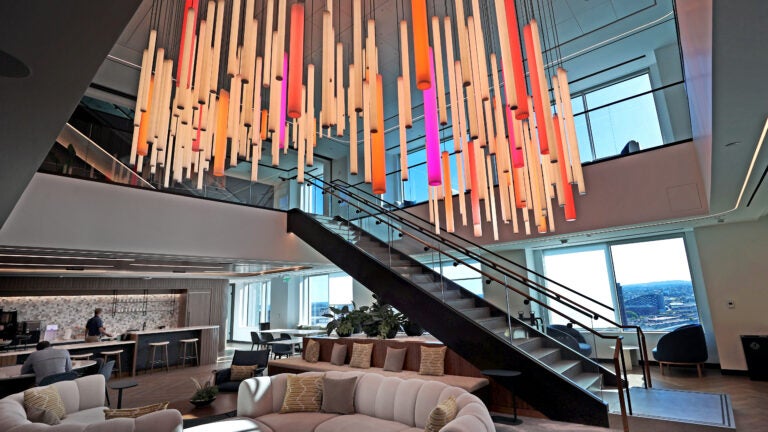#office-vacancy
#office-vacancy
[ follow ]
fromThe Mercury News
1 month agoThree Oakland office towers are seized by lender in speedy foreclosure
Deutsche Bank AG New York Branch, through an affiliate, took ownership of the three office towers in a streamlined foreclosure process, according to documents filed on Jan. 20 with the Alameda County Recorder's Office. The unpaid debt for the three office buildings totals $442.1 million, the financial titan's affiliate stated in the filing, which was a deed in lieu of foreclosure, the county records show. The original loan that Deutsche Bank provided to Starwood totaled $364.5 million, Alameda County real estate records show.
East Bay real estate
fromwww.mercurynews.com
1 month agoThree Oakland office towers are seized by lender in speedy foreclosure
Deutsche Bank AG New York Branch, through an affiliate, took ownership of the three office towers in a streamlined foreclosure process, according to documents filed on Jan. 20 with the Alameda County Recorder's Office. The unpaid debt for the three office buildings totals $442.1 million, the financial titan's affiliate stated in the filing, which was a deed in lieu of foreclosure, the county records show. The original loan that Deutsche Bank provided to Starwood totaled $364.5 million, Alameda County real estate records show.
East Bay real estate
fromGeekWire
1 month agoOffice vacancy hits another record in downtown Seattle despite new tech leases
Tech companies are still signing leases in downtown Seattle - but it's not enough to reverse a pandemic-era slide that pushed office vacancy to another record high, reaching 34.7% in Q4. The latest numbers from commercial real estate firm CBRE underscore how hybrid work and shrinking office footprints continue to weigh on a tech-heavy market like Seattle. The vacancy rate is up about two percentage points from a year ago, and a fivefold increase from before the pandemic.
Real estate
fromThe Center Square
3 months agoChicago downtown office space vacancy rate jumps to record high levels
"One of the problems that is being faced right now in Chicago is that for so long downtown has been centralized for businesses and now in a post-COVID world, where more and more companies realize that remote work is possible, you suddenly have people wondering what is there downtown to be offered," Estabine told The Center Square. "There has been some return to the office, but a lot of companies are opting to remain remote."
Chicago
Remote teams
fromInquirer.com
4 months agoRemote work is on the decline in 2025, but these Philadelphia business leaders are sticking with it
A Philadelphia-registered company operates fully remote with staff across 11 states, demonstrating hiring flexibility and contributing to local office-space reductions.
fromBusiness Matters
4 months agoHow Hybrid Work Is Reshaping London's Offices, Commuting and Local Services
The traditional five-day commute into a central office hub is no longer the default for millions of UK workers. That change gives people more freedom. But it also creates a deep problem for commercial property owners and the city itself. Empty floors, shrinking tenancies and new demands for flexibility force companies to rethink their physical space. This piece explains how a lasting shift to hybrid schedules is remaking London's business map, pushing office conversions, and building a new market around short-term and on-demand services.
Real estate
fromSan Diego Union-Tribune
6 months agoIs Irvine Company pulling out of downtown San Diego a bad sign?
YES: Recent actions by Irvine Company indicate that it has concluded that its resources are better deployed in locations outside of downtown. It continues to invest in other areas such as University City. The high downtown office vacancy rate, the sales price for the property on Broadway the Irvine Company just sold and the struggling Campus at Horton project are all good reasons to have a pessimistic view of downtown commercial real estate.
Real estate
[ Load more ]




